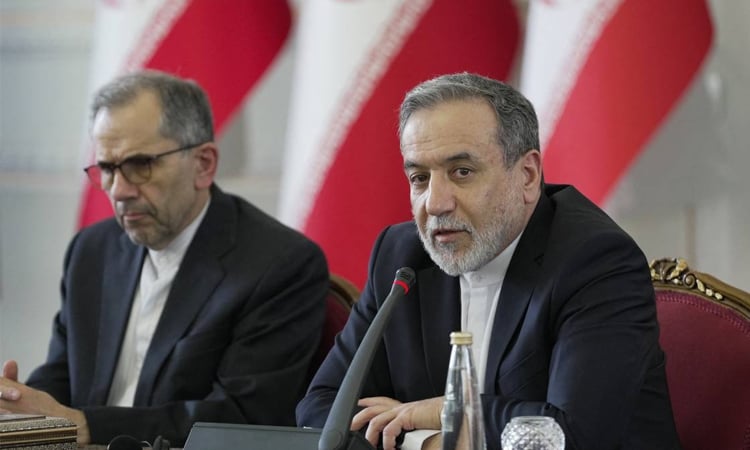News Flash
News Flash

TEHRAN, Aug 21, 2025 (BSS/AFP) - Iran's Foreign Minister Abbas Araghchi on Wednesday said European powers had no right to trigger snapback sanctions under a moribund 2015 nuclear deal or extend the October deadline to trigger them.
His remarks came after Iranian diplomats met in July with counterparts from Germany, France, and Britain -- the first such talks since Israel's attack on Iran the previous month.
The 12-day war between the two regional foes derailed Tehran's nuclear negotiations with the United States and prompted Iran to suspend cooperation with the UN nuclear watchdog.
The European trio had threatened to trigger the so-called "snapback mechanism" by the end of August, a move that would reimpose sweeping UN sanctions lifted under the 2015 accord, unless Tehran agreed to curb uranium enrichment and restore cooperation with inspectors.
According to the Financial Times, the European parties to the deal also offered to extend the October snapback deadline if Iran resumed nuclear talks with Washington and re-engaged with the International Atomic Energy Agency (IAEA).
It added in its report last week that the offer "remained unanswered by Iran".
But on Wednesday, Araghchi dismissed the European parties' right to offer an extension.
"When we believe that they do not have the right to implement snapback, it is natural that they do not have the right to extend its deadline either," he told the state news agency IRNA.
"We have not yet reached a basis for negotiations with the Europeans," he added.
Iran has repeatedly called reimposing sanctions "illegal" and warned of consequences should the European powers opt to activate the mechanism.
- 'A new form' -
Araghchi also said Iran "cannot completely cut cooperation" with the UN nuclear watchdog, but added that the return of its inspectors was up to the country's top security body, the Supreme National Security Council.
In July, Iran suspended cooperation with the IAEA in the wake of its war with Israel, citing the agency's failure to condemn Israeli and US strikes on its nuclear facilities.
The agency's inspectors have since left Iran, and Tehran later said cooperation with the IAEA would take "a new form".
Earlier this month the agency's deputy head visited Tehran for talks. At the time, deputy foreign minister Kazem Gharibabadi said Iran and the agency had agreed to "continue consultations".
Israel's unprecedented attack on Iran in mid-June saw it targeting Iranian nuclear and military sites, as well as residential areas, killing over 1,000 people, including senior commanders and nuclear scientists.
Iran retaliated with missile and drone attacks that killed dozens in Israel.
The United States briefly joined the conflict, striking Iranian nuclear facilities at Fordo, Isfahan and Natanz.
A ceasefire between Iran and Israel has been in place since June 24.
The war took place two days before a sixth round of talks between Tehran and Washington aimed at reaching a nuclear deal to replace the one abandoned by President Donald Trump in 2018 during his first term.
On the possibility of the resumption of talks with the US, Araghchi said they had not yet reached the point where negotiations could take place.